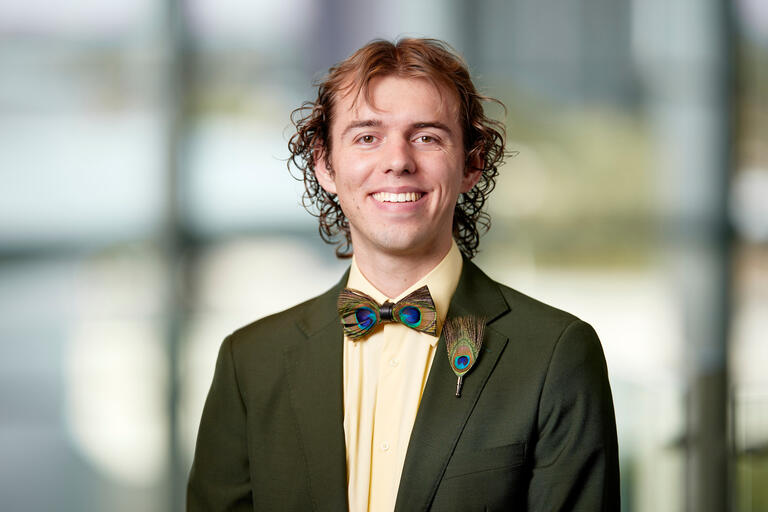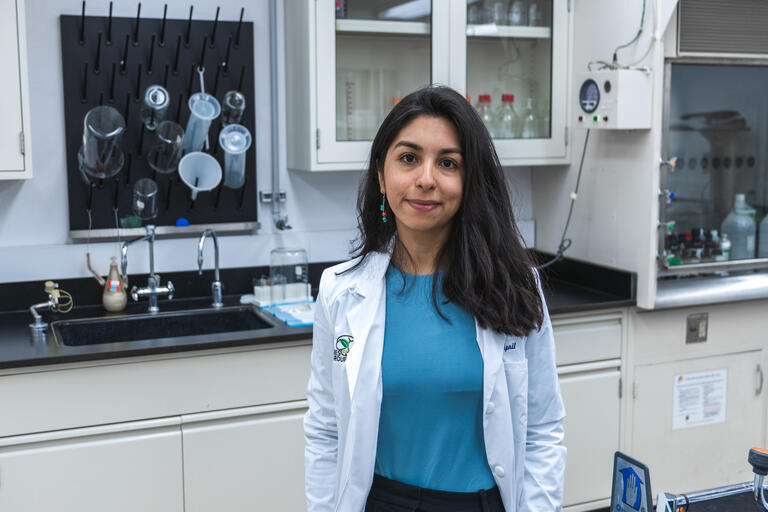Students learn to keep their stress at bay, their drinking in check, and their "Rebel" covered all because of health education programs designed or implemented by Starr Wharton.
Hired as a wellness educator in 2008, Wharton was promoted in 2012 to assistant director for wellness promotion at the Student Recreation and Wellness Center. She also teaches academic courses for the School of Community Health Sciences and School of Business.
What's your job, in a nutshell?
I am a teacher, advocate, preceptor, and promoter for health and wellness on campus. I've re-established our sexual health education program, "Keep Your Rebel Covered," created a formal peer-education program, and implemented free HIV testing clinics in partnership with the Student Health Center, among other things.
What's the toughest challenge about your job?
The toughest challenge is helping the campus community to think critically, make informed decisions, and realize there is no quick fix. This is especially important with nutrition, fitness, drugs and alcohol, and sexual health topics.
What's the quirkiest tool of your trade?
My imagination. I create activities and programs based upon ideas I have and fuse it with evidence-informed practices.
What's your best piece of advice for students?
If you are going to choose to do something, consider the potential benefits and consequences. Accept that you have no control over other people, only your own choices.
What's the story behind your favorite workspace tchotchke?
My workspace is a unique balance of play and inspiration. It includes pictures, games, quotes, and cards. I started a game area, a place in the office where we can be kids and play. Play and laughter is so important.
What's your afternoon pick-me-up?
Having someone find me to talk, get a hug, or come into my office to get away for a while.
How can others on campus make your job easier?
I would love every instructor, staff member and faculty member to visit or ask my department to present to their class, organization, or department.
What's most rewarding in your career?
My career reflects my personal life and my passion for teaching. I am honored to serve in leadership positions in the American Heart Association, (the National Association of Student Personnel Administrators) BACCHUS Initiatives, and the Pacific Coast College Health Association.
In 2013, I was selected as a member of the Health Education Specialist Practice Analysis Task Force. We reviewed the areas of responsibility and competencies for health education and proposed changes to the national credentialing exam. This spring, my student peer educators presented at our regional conference, and participants called the presentation life changing.
If you weren't working here, what would you be doing?
Working as an athletic trainer for the rodeo or professional tennis circuits or in the National Football League.
Dream vacation?
A fortnight in London with an all-access pass to Wimbledon, including Center Court tickets for any match I want to see, a clubhouse pass, and hitting practice with current players and former champs.
What would people be surprised to know about you?
I'm an introvert.
Who do you want to thank for the job they do on campus?
My student peer educators and peer mentors in the HYPER Recovery Support Group make a positive difference every day, and they inspire me to continue in higher education. They are truly the all-stars of campus.
If you were given a $1 million grant to make a campus improvement, start a new program, or improve one we already have, where would you put that money?
I would pay each of my peer educators and peer mentors, create a physical space on campus dedicated for students in recovery to gather and meet, and start a cardiovascular health initiative that includes subsidizing faculty and staff memberships to the recreation facilities of the SRWC.
Anything else you want to add?
Students are our customers. A health or wellness situation may affect a student's ability to continue their education. I feel the campus should encourage students' lifelong wellness and personal development as much as their academic success. We have the most amazing programs and services in the SRWC to support them. And we have an outstanding Faculty & Staff Treatment Center.



